When we talk about sustainability there’s a very compelling argument to take a more holistic approach. Just look at Interface and the huge impact it has had not only on the environment but the economies of small communities throughout the developing world.

As awareness and information surrounding global warming continues to escalate, more and more companies are committing to sustainable manufacturing practices. Especially since the COP21 talks in Paris last December where 196 countries came together to discuss climate change, an increasing number of industries are finally paying attention to the critical issue at hand. We now have a collective goal to reach in limiting our carbon emissions, so as not to exceed a 1.5 degree Celsius global temperature rise, and the majority of those who attended the talks are passionate about realising this.
However, as we look at becoming more sustainable, there is a very pressing need to respond with holistic solutions. To consider those solutions that foster sustainable economic practices for small communities as well as green environmental practices. And one company who recognises this already is Interface, the world’s largest commercial carpet manufacturer.
Thanks to the foresight of founder Ray Anderson, who announced back in 1994 that Interface was committed to becoming the world’s first environmentally sustainable and ultimately restorative company, the manufacturer has been engaging in sustainable processes for years. Among its more recent initiatives though is ReEntry 2.0 – a closed loop recycling process for carpet tiles, which takes ReEntry (the recycling scheme that it introduced in 1995) to a whole new level! This allows all types of carpet – commercial and residential – to be reclaimed.
Thanks to the development of a clever new technology, Interface can cleanly separate the face fibre and backing of nearly any carpet type. So separated type 6,6 nylon fibre is recycled into new 6,6 nylon while separated vinyl backing is recycled into new vinyl backing using the company’s Cool Blue backing technology. What’s more, the entire process requires less energy than other recycling processes.
Through Re-entry 2.0 the company has created the industry’s first-ever range of products using post-consumer type 6,6 nylon fibre. Fittingly, it is call the RePrise Collection. And for the remaining materials, Interface has identified other recycling partners, thus ensuring that no reclaimed carpet ends up in landfill. It is also currently working with waste management specialist SITA to offer an energy recovery service for those tiles that are unsuitable for recycling.
All of this is great progress in itself but what makes this initiative even more worthy of acclaim is that Interface is now incorporating reclaimed fishing nets into its 100% recycled content Type 6 Nylon. And the process of salvaging these fishing nets is creating jobs in small communities throughout the developing world via a program called Net-Works.
Net-Works was set up in 2012 when Interface joined forces with the Zoological Society of London (ZSL); Interface wanted to source material in a way that would benefit communities as well as the environment whilst ZSL were looking to develop a new model of community-based conversation – one that would bring immediate benefits to local people and break the traditional cycle of donor dependency. The ingenious scheme empowers people in small coastal communities in developing nations to collect and sell discarded nylon fishing nets, whilst also removing the nets from the ocean where they wreak havoc on marine life.
However, Net-Works doesn’t just create business opportunities; it also operates in such a way that allows people to save money and take out small loans thanks to the use of local community banks, which provide access to finance in a way that is convenient and local. These banks also manage the local net supply chain by organising the coastal clean-ups, facilitating sales transactions and creating ‘environment funds’ to help finance local projects.
Since 2012 142 metric tonnes of waste nets have been collected, 1500 families have been given access to finance and 62,000 people have benefitted from a healthier environment. It’s a win-win situation on all accounts. Interface isn’t just reducing its dependency on oil; it is helping our seas, reducing our landfills, improving our atmosphere and sustaining small communities throughout the developing world! Imagine what could happen if we all took such a holistic approach to sustainability.
INDESIGN is on instagram
Follow @indesignlive
A searchable and comprehensive guide for specifying leading products and their suppliers
Keep up to date with the latest and greatest from our industry BFF's!
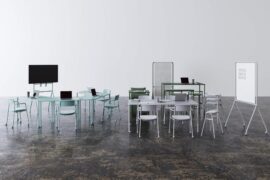
Welcomed to the Australian design scene in 2024, Kokuyo is set to redefine collaboration, bringing its unique blend of colour and function to individuals and corporations, designed to be used Any Way!
The new range features slabs with warm, earthy palettes that lend a sense of organic luxury to every space.
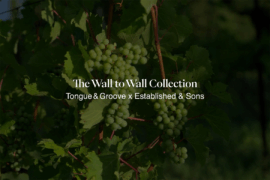
London-based design duo Raw Edges have joined forces with Established & Sons and Tongue & Groove to introduce Wall to Wall – a hand-stained, “living collection” that transforms parquet flooring into a canvas of colour, pattern, and possibility.
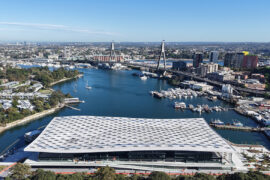
With a date now set for January 2026, Sydney’s landmark project is taking shape as a significant and welcome addition to civic life in the city.
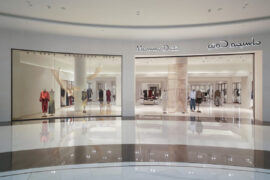
Crafting form and creating function with rattan, Patrick Keane and Enter Projects Asia’s latest project is proving to be a draw card for shoppers at the dynamic fashion house Massimo Dutti.
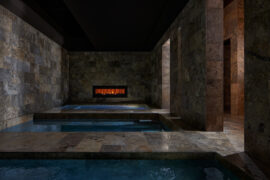
Hogg & Lamb’s Albion Bathhouse has been awarded The Health & Wellbeing Space at the INDE.Awards 2025. The project reimagines the contemporary bathhouse as an immersive architectural journey – one that restores balance through atmosphere, materiality and mindful design.
The internet never sleeps! Here's the stuff you might have missed

CPD Live’s final live-presented season for 2025 continues with a powerful Day 2 lineup, delving into façade weatherproofing, apartment design trends, smart bathrooms, and digital compliance. Starting from 9 AM AEDT, these free CPD-accredited sessions will help you finish the year with fresh insight and full compliance confidence.

Where style and substance truly dwell, Gardam’s latest modular collection – available through Stylecraft – balances elegance and versatility.

At the NGV’s Making Good: Redesigning the Everyday, design becomes a force for repair. From algae-based vinyl to mycelium earplugs, the exhibition proves that rethinking the ordinary can reshape our collective future.